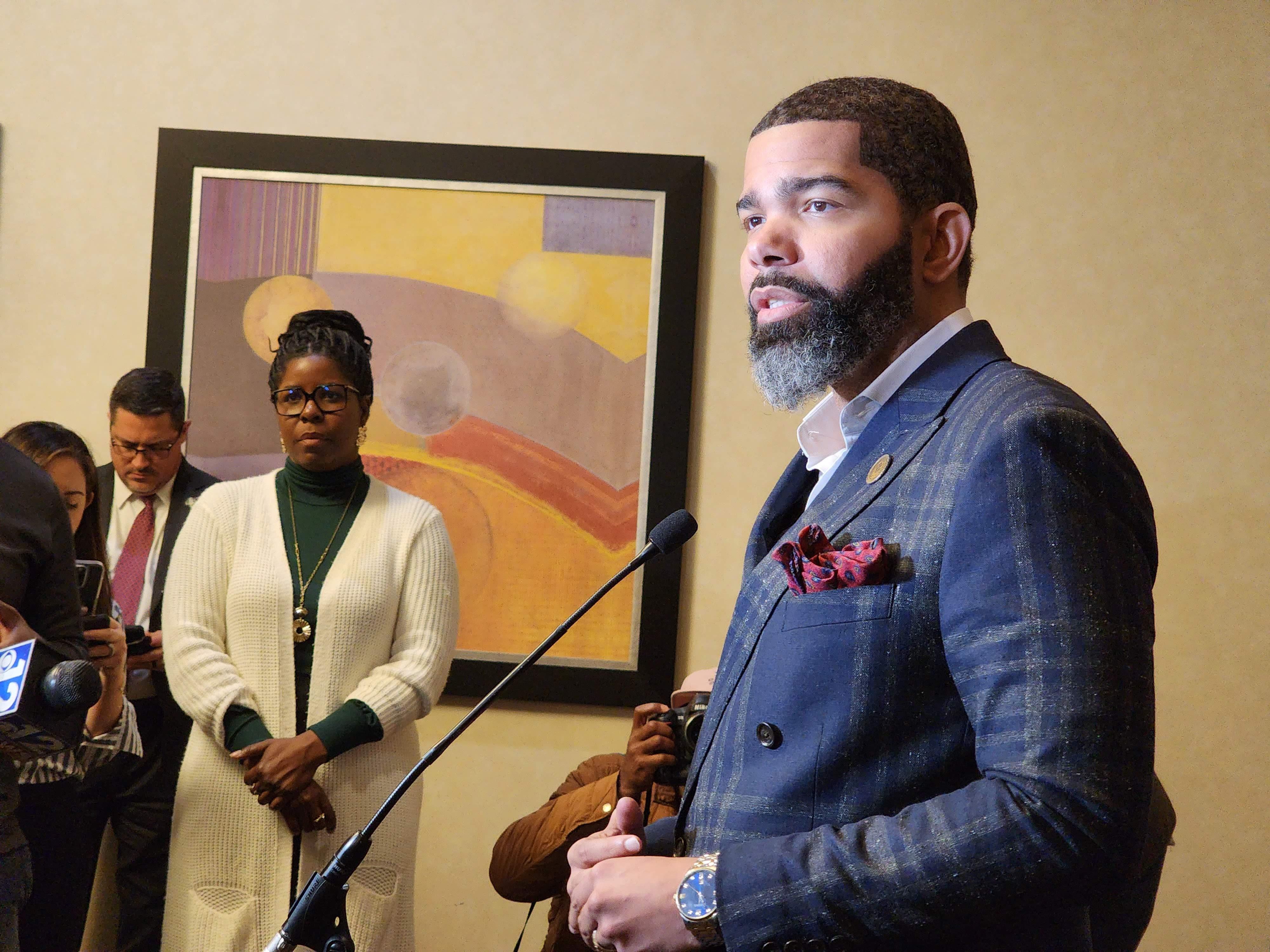Some of the bills passed by Mississippi’s predominately Republican legislature would place the state in charge of the city’s troubled water system, and nearly a billion dollars of federal funding is on the table. Others would give the state’s police jurisdiction and judicial system more control in the Capitol Complex Improvement District. Jackson Mayor Chokwe Antar Lumumba says these bills are attacks on a majority black city by a majority white legislature.
“What I think you can prepare for is a robust fight. I think you can prepare for our resolve lasting a lot longer than what people may give us credit for. I won’t put my cards on the table right now to note all of the ways in which we’re gonna fight it,” says Lumumba. “I’ll just say it’s going to be comprehensive, and we will fight til’ the bitter end.”
Many of the bills that aim to address Jackson’s high crime rates or water issues are authored by lawmakers who do not live in the city. Representative Trey Lamar of Senatobia authored HB 1020, to create an inferior court of unelected judges within Jackson. He claimed during floor debate he had attempted to contact the mayor for input on the bill, but received no response. Mayor Lumumba says he is always available to speak with lawmakers.
Lumumba says “It simply means that my feedback as mayor of the City of Jackson just wasn’t valuable enough. When he talked about the reason why he thought judges should be appointed, he said ‘Well we want to get the best and the brightest.’ That statement represents that we’re just not smart enough, we’re not aware enough of what we need and what our concerns are.”
Many lawmakers from the Jackson delegation have also spoken out against HB 1020, and some claim it could violate the state constitution which requires judges be elected.
Some bills that concerned the city of Jackson were blocked in the legislature, including one that would allow state leaders to unseat a local elected official.




